Coldly, sadly descends
The autumn-evening. The field
Strewn with its dank yellow drifts
Of wither'd leaves, and the elms,
Fade into dimness apace,
Silent;—hardly a shout
From a few boys late at their play!
The lights come out in the street,
In the school-room windows;—but cold,
Solemn, unlighted, austere,
Through the gathering darkness, arise
The chapel-walls, in whose bound
Thou, my father! art laid.
There thou dost lie, in the gloom
Of the autumn evening. But ah!
That word, gloom, to my mind
Brings thee back, in the light
Of thy radiant vigour, again;
In the gloom of November we pass'd
Days not dark at thy side;
Seasons impair'd not the ray
Of thy buoyant cheerfulness clear.
Such thou wast! and I stand
In the autumn evening, and think
Of bygone autumns with thee.
Fifteen years have gone round
Since thou arosest to tread,
In the summer-morning, the road
Of death, at a call unforeseen,
Sudden. For fifteen years,
We who till then in thy shade
Rested as under the boughs
Of a mighty oak, have endured
Sunshine and rain as we might,
Bare, unshaded, alone,
Lacking the shelter of thee.
O strong soul, by what shore
Tarriest thou now? For that force,
Surely, has not been left vain!
Somewhere, surely afar,
In the sounding labour-house vast
Of being, is practised that strength,
Zealous, beneficent, firm!
Yes, in some far-shining sphere,
Conscious or not of the past,
Still thou performest the word
Of the Spirit in whom thou dost live—
Prompt, unwearied, as here!
Still thou upraisest with zeal
The humble good from the ground,
Sternly repressest the bad!
Still, like a trumpet, dost rouse
Those who with half-open eyes
Tread the border-land dim
'Twixt vice and virtue; reviv'st,
Succourest!—this was thy work,
This was thy life upon earth.
What is the course of the life
Of mortal men on the earth?—
Most men eddy about
Here and there—eat and drink,
Gather and squander, are raised
Aloft, are hurl'd in the dust,
Striving blindly, achieving
Nothing; and then they die—
Perish;—and no one asks
Who or what they have been,
More than he asks what waves,
In the moonlit solitudes mild
Of the midmost ocean, have swell'd,
Foam'd for a moment, and gone.
And there are some, whom a thirst
Ardent, unquenchable, fires,
Not with the crowd to be spent,
Not without aim to go round
In an eddy of purposeless dust,
Effort unmeaning and vain.
Ah yes! some of us strive
Not without action to die
Fruitless, but something to snatch
From dull oblivion, nor all
Glut the devouring grave!
We, we have chosen our path—
Path to a clear-purposed goal,
Path of advance!—but it leads
A long, steep journey, through sunk
Gorges, o'er mountains in snow.
Cheerful, with friends, we set forth—
Then on the height, comes the storm.
Thunder crashes from rock
To rock, the cataracts reply,
Lightnings dazzle our eyes.
Roaring torrents have breach'd
The track, the stream-bed descends
In the place where the wayfarer once
Planted his footstep—the spray
Boils o'er its borders! aloft
The unseen snow-beds dislodge
Their hanging ruin; alas,
Havoc is made in our train!
Friends, who set forth at our side,
Falter, are lost in the storm.
We, we only are left!
With frowning foreheads, with lips
Sternly compress'd, we strain on,
On—and at nightfall at last
Come to the end of our way,
To the lonely inn 'mid the rocks;
Where the gaunt and taciturn host
Stands on the threshold, the wind
Shaking his thin white hairs—
Holds his lantern to scan
Our storm-beat figures, and asks:
Whom in our party we bring?
Whom we have left in the snow?
Sadly we answer: We bring
Only ourselves! we lost
Sight of the rest in the storm.
Hardly ourselves we fought through,
Stripp'd, without friends, as we are.
Friends, companions, and train,
The avalanche swept from our side.
But thou woulds't not alone
Be saved, my father! alone
Conquer and come to thy goal,
Leaving the rest in the wild.
We were weary, and we
Fearful, and we in our march
Fain to drop down and to die.
Still thou turnedst, and still
Beckonedst the trembler, and still
Gavest the weary thy hand.
If, in the paths of the world,
Stones might have wounded thy feet,
Toil or dejection have tried
Thy spirit, of that we saw
Nothing—to us thou wage still
Cheerful, and helpful, and firm!
Therefore to thee it was given
Many to save with thyself;
And, at the end of thy day,
O faithful shepherd! to come,
Bringing thy sheep in thy hand.
And through thee I believe
In the noble and great who are gone;
Pure souls honour'd and blest
By former ages, who else—
Such, so soulless, so poor,
Is the race of men whom I see—
Seem'd but a dream of the heart,
Seem'd but a cry of desire.
Yes! I believe that there lived
Others like thee in the past,
Not like the men of the crowd
Who all round me to-day
Bluster or cringe, and make life
Hideous, and arid, and vile;
But souls temper'd with fire,
Fervent, heroic, and good,
Helpers and friends of mankind.
Servants of god!—or sons
Shall I not call you? Because
Not as servants ye knew
Your Father's innermost mind,
His, who unwillingly sees
One of his little ones lost—
Yours is the praise, if mankind
Hath not as yet in its march
Fainted, and fallen, and died!
See! In the rocks of the world
Marches the host of mankind,
A feeble, wavering line.
Where are they tending?—A God
Marshall'd them, gave them their goal.
Ah, but the way is so long!
Years they have been in the wild!
Sore thirst plagues them, the rocks
Rising all round, overawe;
Factions divide them, their host
Threatens to break, to dissolve.
—Ah, keep, keep them combined!
Else, of the myriads who fill
That army, not one shall arrive;
Sole they shall stray; in the rocks
Stagger for ever in vain,
Die one by one in the waste.
Then, in such hour of need
Of your fainting, dispirited race,
Ye, like angels, appear,
Radiant with ardour divine!
Beacons of hope, ye appear!
Languor is not in your heart,
Weakness is not in your word,
Weariness not on your brow.
Ye alight in our van! at your voice,
Panic, despair, flee away.
Ye move through the ranks, recall
The stragglers, refresh the outworn,
Praise, re-inspire the brave!
Order, courage, return.
Eyes rekindling, and prayers,
Follow your steps as ye go.
Ye fill up the gaps in our files,
Strengthen the wavering line,
Stablish, continue our march,
On, to the bound of the waste,
On, to the city of God.










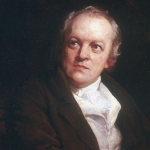

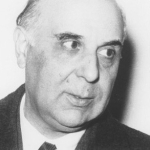
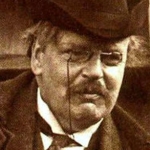
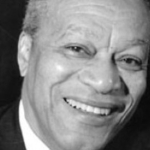

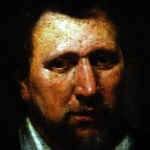


Comment form: